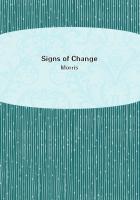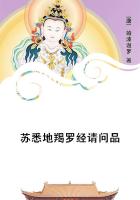I could not repeat a word he said. I only knew as he spoke and I listened, the door between the seen and the unseen opened and I saw a great soul and its quest, God's glory. I came back to earth to find this seer, with his vision of the wonder that should be, a master of detail and the most tireless worker. The same day as this apocalypse, or soon after, I went with Mr. Durant up a skeleton stairway to see the view from an upper window. The workmen were all gone but one man, who stood resting a grimy hand on the fair newly finished wall. For one second I feared to see a blow follow the flash of Mr. Durant's eye, but he lowered rather than raised his voice, as after an impressive silence he showed the scared man the mark left on the wall and his enormity. . . .
Life was keyed high in Mr. Durant's home, and the keynote was Wellesley College. While the walls were rising he kept workman's hours. Long before the family breakfast he was with the builders.
At prayers I learned to listen night and morning for the prayer for Wellesley--sometimes simply an earnest 'Bless Thy college.'
We sat on chairs wonderful in their variety, but all on trial for the ease and rest of Wellesley, and who can count the stairways Mrs. Durant went up, not that she might know how steep the stairs of another, but to find the least toilsome steps for Wellesley feet.
"Night did not bring rest, only a change of work. Letters came and went like the correspondence of a secretary of state. Devotion and consecration I had seen before, and sacrifice and self-forgetting, but never anything like the relentless toil of those two who toiled not for themselves. If genius and infinite patience met for the ****** of Wellesley, side by side with them went the angels of work and prayer; the twin angels were to have their shrine in the college."
V.
On September 8, I875, the college opened its doors to three hundred and fourteen students. More than two hundred other applicants for admission had been refused for lack of room. We can imagine the excitement of the fortunate three hundred and fourteen, driving up to the college in family groups,--for their fathers and mothers, and sometimes their grandparents or their aunts came with them.
They went up Washington Street, "the long way", past the little Gothic Lodge, and up the avenue between the rows of young elms and purple beeches. There was a herd of Jersey cows grazing in the meadow that day, and there is a tradition that the first student entered the college by walking over a narrow plank, as the steps up to the front door were not yet in place; but the story, though pleasantly symbolical, does not square with the well-known energy and impatience of the founder.
The students were received on their arrival by the president, Miss Ada L. Howard, in the reception room. They were then shown to their rooms by teachers. The majority of the rooms were in suites, a study and bedroom or bedrooms for two, three, and in a few suites, four girls. There were almost no single rooms in those days, even for the teachers. With a few exceptions, every bedroom and every study had a large window opening outdoors.
There were carpets on the floors, and bookshelves in the studies, and the black walnut furniture was ****** in design. As one alumna writes: "The wooden bedsteads with their wooden slats, of vivid memory, the wardrobes, so much more hospitable than the two hooks on the door, which Matthew Vassar vouchsafed to his protegees, the high, commodious bureaus, with their 'scant' glass of fashion, are all endeared to us by long association, and by our straining endeavors to rearrange them in our rooms, without the help of man."
When the student had showed her room to her anxious relatives, on that first day, she came down to the room that was then the president's office, but later became the office of the registrar.
There she found Miss Sarah P. Eastman, who, for the first six years of the college life, was teacher of history and director of domestic work. Later, with her sister, Miss Julia A. Eastman, she became one of the founders of Dana Hall, the preparatory school in Wellesley village. An alumna of the class of '80 who evidently had dreaded this much-heralded domestic work, writes that Miss Eastman's personality robbed it of its horrors and made it seem a noble and womanly thing. "When, in her sweet and gracious manner, she asked, 'How would you like to be on the circle to scrape dinner dishes?' you straightway felt that no occupation could be more noble than scraping those mussy plates."
"All that day," we are told, "confusion was inevitable. Mr. Durant hovered about, excited, anxious, yet reassured by the enthusiasm of the students, who entered with eagerness into the new world.
He superintended feeding the hungry, answered questions, and studied with great keenness the faces of the girls who were entering Wellesley College. In the middle of the afternoon it had been discovered that no bell had been provided for waking the students, so a messenger went to the village to beg help of Mrs. Horton (the mother of the professor of Greek), who promptly provided a large brass dinnerbell. At six o'clock the next morning two students, side by side, walked through all the corridors, ringing the rising-bell,--an act, as Miss Eastman says, symbolic of the inner awakening to come to all those girls." Thirty-nine years later, at the sound of a bell in the early morning, the household were to awake to duty for the last time in the great building.
The unquestioning obedience, the prompt intelligence, the unconscious selflessness with which they obeyed that summons in the dawn of March 17, 1914, witness to that "inner awakening."
The early days of that first term were given over to examinations, and it was presently discovered that only thirty of the three hundred and fourteen would-be college students were really of college grade.















